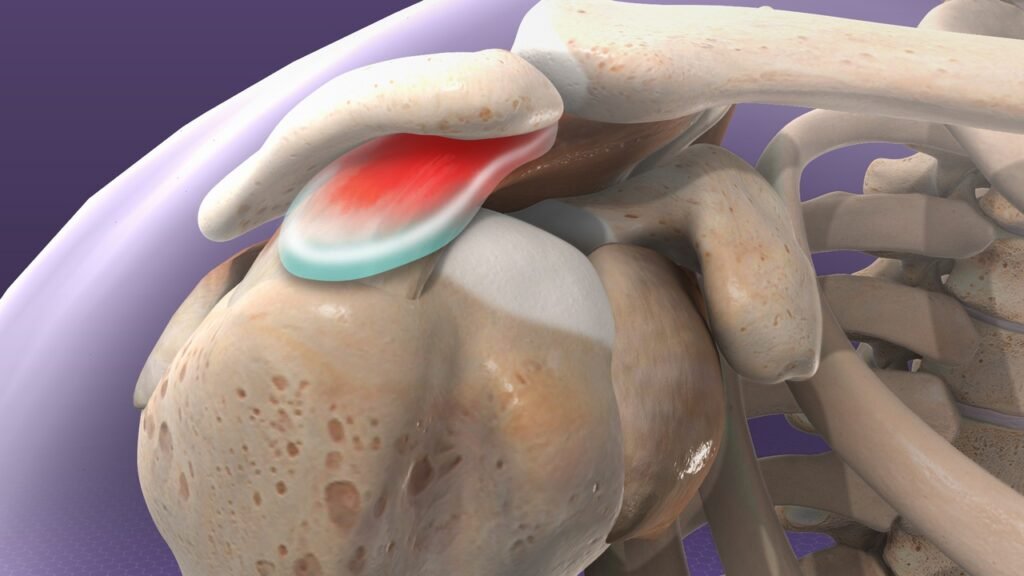Shoulder Impingement
Shoulder Impingement
Experiencing sharp shoulder pain when lifting your arm or reaching behind your back? You might be dealing with shoulder impingement, a common condition where the tendons or bursa in the shoulder get compressed between bones during movement. At Theracave, we help patients manage and recover from shoulder impingement through customized physical therapy that reduces inflammation, restores movement, and strengthens the shoulder joint.
Shoulder impingement often develops gradually and can severely affect your ability to perform everyday activities. Left untreated, it can lead to more serious problems like tendon tears or chronic shoulder instability. Early diagnosis and guided therapy can help you get back to pain-free motion safely.

Causes:
Symptoms
How Theracave Help Us?
Q&A
What is shoulder impingement and how does it happen?
Shoulder impingement occurs when soft tissues like the rotator cuff tendons or bursa get compressed under the acromion bone during arm movement. This can cause irritation, inflammation, and pain—especially with repeated overhead activity.
Can shoulder impingement be treated without surgery?
Yes, in most cases, non-surgical treatments like physical therapy are highly effective. Therapy focuses on improving posture, strengthening shoulder stabilizers, and restoring proper movement patterns to relieve pressure and prevent recurrence.
What happens if shoulder impingement is left untreated?
If not addressed, impingement can lead to chronic pain, rotator cuff tendonitis, or even a tendon tear. It can also result in limited function and increased weakness in the shoulder over time.
How long does it take to recover from shoulder impingement?
Recovery time depends on the severity and how early treatment begins. With consistent physical therapy, many people experience significant improvement within 4–8 weeks, though full recovery may take longer in chronic cases.
What Customers Are Saying
Our Process
How It Works?
Reach out to us via our online form or call to schedule an initial assessment.
Evaluation
Based on your unique needs, we develop a tailored therapy program.
Plan
Our professionals guide you through each session, focusing on effective rehabilitation.


